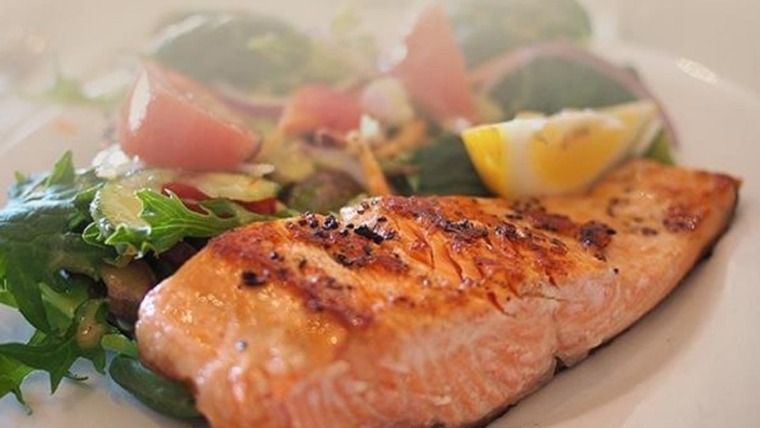
How To Eat Sustainably Whilst Travelling
Written by Adrianna Krueger
We can finally travel again, finally pack our bags again! After months of lockdown, the need for freedom, pub visits and travel is greater than ever. This is also confirmed by surveys in the tourism industry.
"Where will we go when we can travel again?"
Have you ever asked yourself this question? Corona has fundamentally changed the travel world! Since the pandemic has not yet been fought completely, holidays in your own country are at the top of the list. Many Australians would rather go on a home vacation than travel abroad.
Safety is paramount. While vaccination, masking, testing and the safety distance have become part of our daily living conditions to protect us, it is important to strengthen our immune system from within. Of course, this can best be achieved with a healthy diet. However, can an organic lifestyle also be attained when you are travelling?
Why You Should Eat Regionally And Sustainably On Vacation!
Eating regionally and sustainably - what does that mean? Anyone who wants to leave the smallest possible ecological footprint on the world should deal with sustainable nutrition.
This includes changing one's own consumer behaviour in such a way that the ecological and economic consequences remain as low as possible. Consumers are also concerned about their own health. More and more people want to know exactly where the food they consume comes from and under what conditions these products were produced.
What Is A Sustainable Diet?
Our usual consumer behaviour has a number of consequences. These include increased greenhouse gas emissions (CO₂), environmental pollution from pollutants, water shortages, species decline and overfishing of the seas. Our environment and our health are damaged by our food consumption. With a sustainable diet, however, you make sure that the natural and human foundations of life are protected.
You eat in such a way that your consumption and diet have little impact on the environment. You get information about production and delivery conditions, pay attention to environmentally friendly cultivation and protect natural resources. In doing so, you are also doing the best for your health. A good indicator of sustainability and your own health is, for example, the organic certification on food or products.
Regionality Plays An Increasingly Important Role In The Purchase Decisions
Shops at the farm gate are very popular and products from the region even occupy a large place in the advertising brochures of discounters. This trend is also reflected in tourism. Many tourists are curious about the specialities that are typical for the holiday region. Regardless of whether the travel destination is in Australia or abroad - there is a lot to discover from a culinary point of view in each region. Restaurants advertise that their kitchens use fresh products from the respective region, and guests are happy to accept the tempting offer and let themselves be pampered.
Why Eat Regionally And Sustainably On Vacation?
Eating regionally and sustainably on vacation is a decision that everyone benefits from. Anyone who has ever harvested and consumed a sun-ripened tomato straight from the bush will appreciate the intense, delicious aroma and flavour.
It is no different with fruit, vegetables, fish, meat and almost all other foods. The shorter the transport routes from the producer to the consumer, the better the valuable ingredients and flavours of the food are preserved. Food prepared from such ingredients taste wonderful and is particularly valuable from a nutritional point of view. Especially on vacation, it is nice to benefit from it.
Buy Regional Products While Traveling And Support Local Producers
Vacationers who opt for regional products strengthen the regional economic cycle. Often it is smaller farms that have opted for organic and sustainable farming. They produce potatoes, grains, milk, butter, yoghurt, cheese, wine, honey and fresh herbs with great diligence and great care and market them directly or supply hotels and restaurants in the vicinity. Sustainable nutrition on vacation helps regional producers secure their livelihood.
At the same time, diversity in agriculture is promoted in this way. Instead of monotonous monocultures, ecological agriculture focuses on colourful diversity and environmentally friendly operations. Old animal breeds and types of fruit are being rediscovered, and the use of pesticides and herbicides is avoided as far as possible.
Organic farmers do a lot to produce sustainably by using products and processes that meet the needs of consumers, nature and wildlife. Then again, what exactly is sustainable agriculture?
- Cultivation methods and production methods that do not destroy soils but improve their productivity over the long term
- Minimizing harmful effects on the climate, air, water, soil, fauna and flora as well as human health
- Use of sustainable renewable energies
- Use of regional seeds and organic fertilizers
- Employ workers long-term and ensure decent wages, including decent working and living conditions
Responsibility? Environmental Protection? How can this be achieved?
In addition to living and mobility, nutrition is one of the areas that play an important role in calculating the ecological footprint. Those who eat regionally and sustainably reduce their footprint considerably. Unfortunately, there is no label in Australia that makes carbon dioxide emissions clear. With a little thought though, anyone can find out which foods are more polluting. Anyone who buys seasonal and regional products and also eats a predominantly “organic” diet can enjoy with a clear conscience.
Travel Sustainably And Consciously Enjoy Organic Food, Is Possible!
For many Australians, travelling on vacation is one of the things that they definitely don't want to do without. So what should you pay attention to so that you don't have to go without a healthy diet even on holiday?
When travelling abroad, consumers cannot access the organic brands and certificates that have been tried and tested in Australia. The products have not been awarded the Australian organic certification label in other countries. However, in most parts of the world organically grown food exists. Organic food is comparatively easy to obtain in Australia and in other so-called western countries such as the EU, UK or the USA. Certified organic food is also available in most other countries in the world. As a consumer, you can inquire about the respective approvals from the official bodies or from the International Federation of Organic Agriculture Movement (IFOAM).
Organic Vacation In Australia
From an ecological point of view, it is certainly better to vacation nearby than to fly long distances. In this country, there is an abundance of offers for organic holidays. The respective accommodations are based on the organic requirements and offer, for example, food from organic production. In other areas, too, the accommodations are concerned with environmental friendliness, health and sustainability. There is a wide variety of establishments such as hotels, guest houses or organic farms that offer holidays for the whole family.
Organic food is always good for our health especially when we are travelling. Travelling can cause a lot of exhaustion, having organic food while travelling will keep you energized and healthy. On this note: Have a safe and healthy holiday!
How To Eat Sustainably Whilst Travelling How To Eat Sustainably Whilst Travelling How To Eat Sustainably Whilst Travelling



